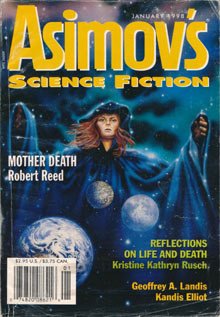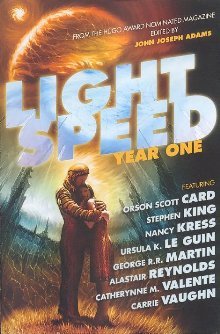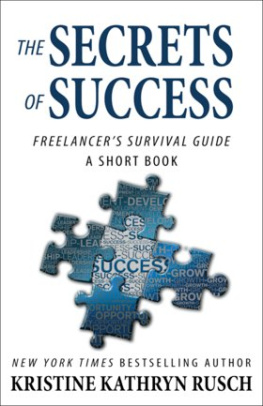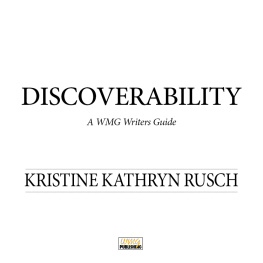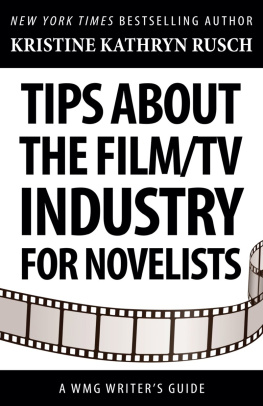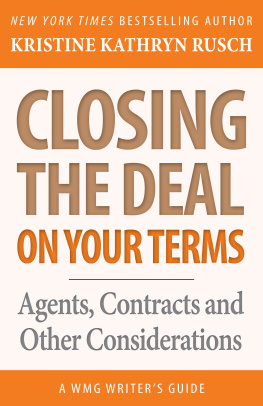Rusch - The freelancers survival guide
Here you can read online Rusch - The freelancers survival guide full text of the book (entire story) in english for free. Download pdf and epub, get meaning, cover and reviews about this ebook. year: 2013, publisher: WMG Publishing, genre: Home and family. Description of the work, (preface) as well as reviews are available. Best literature library LitArk.com created for fans of good reading and offers a wide selection of genres:
Romance novel
Science fiction
Adventure
Detective
Science
History
Home and family
Prose
Art
Politics
Computer
Non-fiction
Religion
Business
Children
Humor
Choose a favorite category and find really read worthwhile books. Enjoy immersion in the world of imagination, feel the emotions of the characters or learn something new for yourself, make an fascinating discovery.

- Book:The freelancers survival guide
- Author:
- Publisher:WMG Publishing
- Genre:
- Year:2013
- Rating:4 / 5
- Favourites:Add to favourites
- Your mark:
- 80
- 1
- 2
- 3
- 4
- 5
The freelancers survival guide: summary, description and annotation
We offer to read an annotation, description, summary or preface (depends on what the author of the book "The freelancers survival guide" wrote himself). If you haven't found the necessary information about the book — write in the comments, we will try to find it.
Rusch: author's other books
Who wrote The freelancers survival guide? Find out the surname, the name of the author of the book and a list of all author's works by series.
The freelancers survival guide — read online for free the complete book (whole text) full work
Below is the text of the book, divided by pages. System saving the place of the last page read, allows you to conveniently read the book "The freelancers survival guide" online for free, without having to search again every time where you left off. Put a bookmark, and you can go to the page where you finished reading at any time.
Font size:
Interval:
Bookmark:
THE FREELANCERS
SURVIVAL GUIDE
Third Edition
Kristine Kathryn Rusch
Copyright Information
The Freelancers Survival Guide
Third Edition
Copyright 2013 by Kristine Kathryn Rusch
Published by WMG Publishing
Cover and layout design copyright 2013 by WMG Publishing
Most of this material appeared in different form on the blog The Freelancers Survival Guide from April 2009 to August 2010 and The Business Rusch in November 2012 at kristinekathrynrusch.com.
This book is licensed for your personal enjoyment only. All rights reserved.
This book, or parts thereof, may not be reproduced in any form without permission.
Table of Contents
Section One: Getting Started
Section Two: Time Management
Section Three: Money Management
Section Four: How to Negotiate Anything
Section Five: Networking in Person and Online
Section Six: Risks, Setbacks, and Emergencies
Section Seven: Success
Section Eight: Goals and Dreams
Section Nine: The Future
Section Ten: The Benefits of Freelancing
Introduction
When I initially came up with the idea for The Freelancers Survival Guide more than ten years ago now, I never imagined what it would become. I thought I would write a short book about the various things a freelancer needs to know to survive in the modern business world. I still have my initial outline and looking at it, I have a hunch that had I written it, the book would have been one-third the length of this one.
It isnt that I have learned so much more in the past ten years; its just that I hadnt realized how much people wanted to know.
I started my writing career in non-fiction. I saw non-fiction as a way to make money to support my fiction-writing career. At least, thats what I tell people. If you actually look at my writing history, youll see that I have always written fiction and non-fiction simultaneouslybeginning with the newspaper I published for my neighborhood at the age of ten and sold for a nickel per copy.
I worked as a journalist, mostly in radio, and published articles on business from college onward. My non-fiction style has always been colloquialwhile I like imparting information, I prefer to do so in a personal way. I have published a lot of fiction books, from collections to novels, but The Freelancers Survival Guide is my first non-fiction book.
Honestly, it would not exist if it werent for my blog. Although I thought of writing this book for years, I always had other projects that took my time and interest. Articles are relatively easy to write, and they take little time. A non-fiction book, on the other hand, takes as much time as a novel. I started the book twice, believing I could just putter at it, and never finished it. I knew I did not want to make the concentrated effortlosing months, maybe a year, of my writing timeto write the Guide .
Particularly when I knew what would happen to it. If I sold ita big if, non-fiction editors told me, because the book wasnt geared toward one kind of freelancer (writers, for example) but because I geared it to all different kinds of people who want to work for themselvesthe book would go to the back of the bookstore, and disappear along the shelves. It would have a month-long active publication life, and from then on, it would have to accompany me to conferences and book fairs if I wanted to keep the Guide in print.
I did want to keep it in print, but not because I wanted to earn a fortune at it and because I wanted it to be a bestseller. Writing a book like this is not the best way to become a household name.
I honestly had no interest in writing the Guide for me. I wanted to write it for all the freelancers Ive met, all the people who are struggling through start-ups, all the people who are struggling to survive. I also wanted it for the people whose businesses were succeeding, but who had no idea what to do with that success. I wanted a book I could hand out to my students, yes, but also a book that someone else could find, someone in a small town who didnt go to conventions or book fairs or conferences, someone who needed a friend who had gone through the hardships of running her own business and could give some advice.
When the Great Recession started, I realized I had missed my publishing window. I should have finished the Guide in 2005 or 2006, so that I could have found a publisher who would have had the book on the stands by late 2008, when peoplehaving lost their jobsdecided they might as well work for themselves. I even saw the book as being useful to people who werent planning on starting their own businesses, people who just needed help organizing their time and their finances while they searched for a new job. Looking for a job in a down economy is, in essence, working for yourself.
I moped for a few months, thinking I had missed an opportunity, and then I realized that changes in technology had given me another option. I could write the book a chapter per week, and upload that chapter on my website. If the experiment didnt workif no one came to read the blogthen I would have some chapters and my outline, and I could approach publishers.
Frankly, thats what I expected would happen.
Instead, I went through a personal revolution. I got readers and donations to keep me writing from my very first post. The readership grew. Over the seventy weeks it took me to finish the Guide , I received enough donations to equal a nice non-fiction advance from a New York publisher. I did not expect that at all. I also got a larger readership than I would have if the Guide had been published as I mentioned above. In fact, the readership is still growing. I got e-mail just this morning from a woman who discovered the Guide a week ago, and is slowly reading her way through the blog posts.
After I finished three chapters, I did send a proposal to my agent, so that he could market the book to major publishers. He wasnt enthusiastic about the project (for the reasons I mentioned above), although he did have a few ideas about marketing it. By the time he got those ideas to me, I was growing more and more reluctant to publish the book conventionally. It was the middle of the summernot a good time to mail out a bookand we agreed to put it on hold.
I never went back. By the fall, I realized I wanted to publish this book myself. I wanted small distribution and more importantly to me, I wanted to be able to keep the book in print. I decided to do an electronic edition that I would give to anyone who had donated to keep me working, as well as a print edition.
It wasnt that farfetched for me to publish the book. As youll discover when you read this, I used to co-own a publishing company with my husband Dean Wesley Smith. I know what it takes to publish a book, and how hard you have to work to market it. I also knew that I would need to do some organization work and trimming to make the Guide work in book form. My only concern was editing. Although I had won awards for my editing, editing yourself is a dicey proposition. Eventually I decided to hire an editor to make sure the manuscript was in order.
Fast-forward another year. I finished the blog version Guide a few weeks ago. I have just finished organizing all of the posts. Some combined into a single post; a few got cannibalized into other posts. I had to make some decisions as I did this, decisions that will affect what you read.
I decided to keep the conversational tone. The chapters were originally blog posts. Many times, the posts would not have existed without reader feedback. Indeed, the Guide is as large as it is because of reader comments, e-mails, and suggestions. So rather than try to artificially adopt that expert tone, I decided to leave the chapters as close to the blog posts as they can be. Sometimes, Ive included a dateespecially when an event or a news story inspired my post. Sometimes I havent.
Next pageFont size:
Interval:
Bookmark:
Similar books «The freelancers survival guide»
Look at similar books to The freelancers survival guide. We have selected literature similar in name and meaning in the hope of providing readers with more options to find new, interesting, not yet read works.
Discussion, reviews of the book The freelancers survival guide and just readers' own opinions. Leave your comments, write what you think about the work, its meaning or the main characters. Specify what exactly you liked and what you didn't like, and why you think so.

